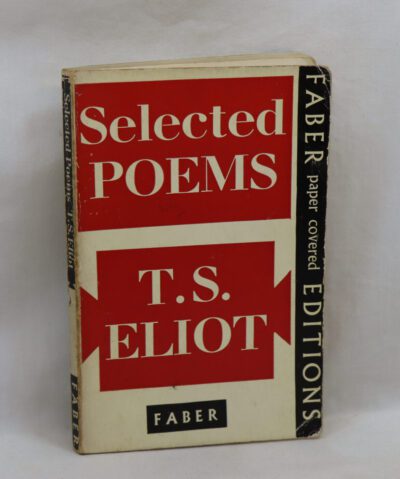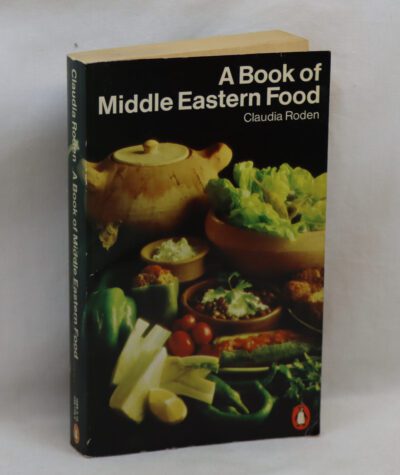Select Eligies of Propertius.
By J P Postgate
Printed: 1958
Publisher: Macmillan & Co. London
Language: English, Latin
Size (cminches): 12 x 17 x 2
Condition: Very good (See explanation of ratings)
Item information
Description
Red cloth binding with gilt title on the spine.
We provide an in-depth photographic presentation of this item to stimulate your feeling and touch. More traditional book descriptions are immediately available.
- Note: This book carries a £5.00 discount to those that subscribe to the F.B.A. mailing list
Sextus Propertius was a Latin elegiac poet of the Augustan age. He was born around 50–45 BC in Assisium (now Assisi) and died shortly after 15 BC.Propertius’ surviving work comprises four books of Elegies (Elegiae). He was a friend of the poets Gallus and Virgil and, with them, had as his patron Maecenas and, through Maecenas, the emperor Augustus. Although Propertius was not as renowned in his own time as other Latin elegists,he is today regarded by scholars as a major poet.
Propertius himself says he was popular and even scandalous in his own day. Horace, however, says that he would have to “endure much” and “stop up his ears” if he had to listen to “Callimachus… to please the sensitive stock of poets”; Postgate and others see this as a veiled attack on Propertius, who considered himself the Roman heir to Callimachus. This judgement also seems to be upheld by Quintilian, who ranks the elegies of Tibullus higher and, while accepting that others preferred Propertius, is himself somewhat dismissive of the poet. However, Propertius’ popularity is attested by the presence of his verses in the graffiti preserved at Pompeii; while Ovid, for example, drew on him repeatedly for poetic themes, more than on Tibullus.
Propertius fell into obscurity in the Middle Ages. In the 12th century, he and Cynthia were summoned to a Love Assize but he was truly rediscovered during the Italian Renaissance along with the other elegists. Petrarch’s love sonnets certainly show the influence of his writing, and Aeneas Silvius (the future Pope Pius II) titled a collection of his youthful elegies “Cinthia”. There are also a set of “Propertius Elegies” attributed to the English writer Ben Jonson, though the authorship of these is disputed. Johann Wolfgang von Goethe’s 1795 collection of “Elegies” also shows some familiarity with Propertius’ poetry.
Propertius is the lyrical protagonist of Joseph Brodsky’s poem “Anno Domini” (1968), originally written in Russian. His relationship with Cynthia is also addressed in Robert Lowell’s poem, “The Ghost. After Sextus Propertius”, which is a free translation of Propertius’ Elegy IV 7.
Elena Shvarts wrote a cycle of poems as if they were the works of Propertius’ love, Cynthia. She explains Cynthia’s ‘poems have not survived, nevertheless I have tried to translate them into Russian’.
In the 20th century Ezra Pound’s poem “Homage to Sextus Propertius” cast Propertius as something of a satirist and political dissident, and his translation/interpretation of the elegies presented them as ancient examples of Pound’s own Imagist theory of art. Pound identified in Propertius an example of what he called (in “How to Read”) ‘logopoeia’, “the dance of the intellect among words.” Gilbert Highet, in Poets in a Landscape, attributed this to Propertius’ use of mythic allusions and circumlocution, which Pound mimics to more comic effect in his Homage. The imagist interpretation, the poet’s tendency to sustain an interior monologue, and the deeply personal nature of his poetry have made Propertius a favorite in the modern age. In 1906 J. S. Phillimore presented a prose translation of Propertius, published by Oxford University Press. Three modern English translations of his work have appeared since 2000, and the playwright Tom Stoppard suggests in his best-known work The Invention of Love that the poet was responsible for much of what the West regards today as “romantic love”. The most recent translation appeared in September 2018 from Carcanet Press, and was a Poetry Book Society Autumn Recommended Translation. The collection entitled Poems (ISBN 9781784106515) is edited by Patrick Worsnip with a foreword by Peter Heslin.
Want to know more about this item?

Related products
Share this Page with a friend












